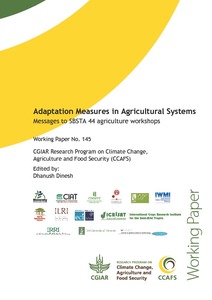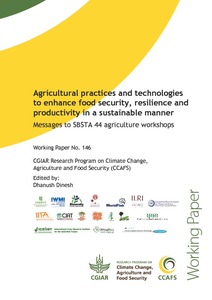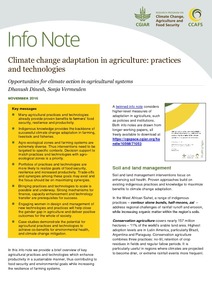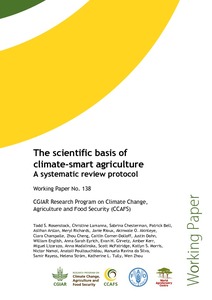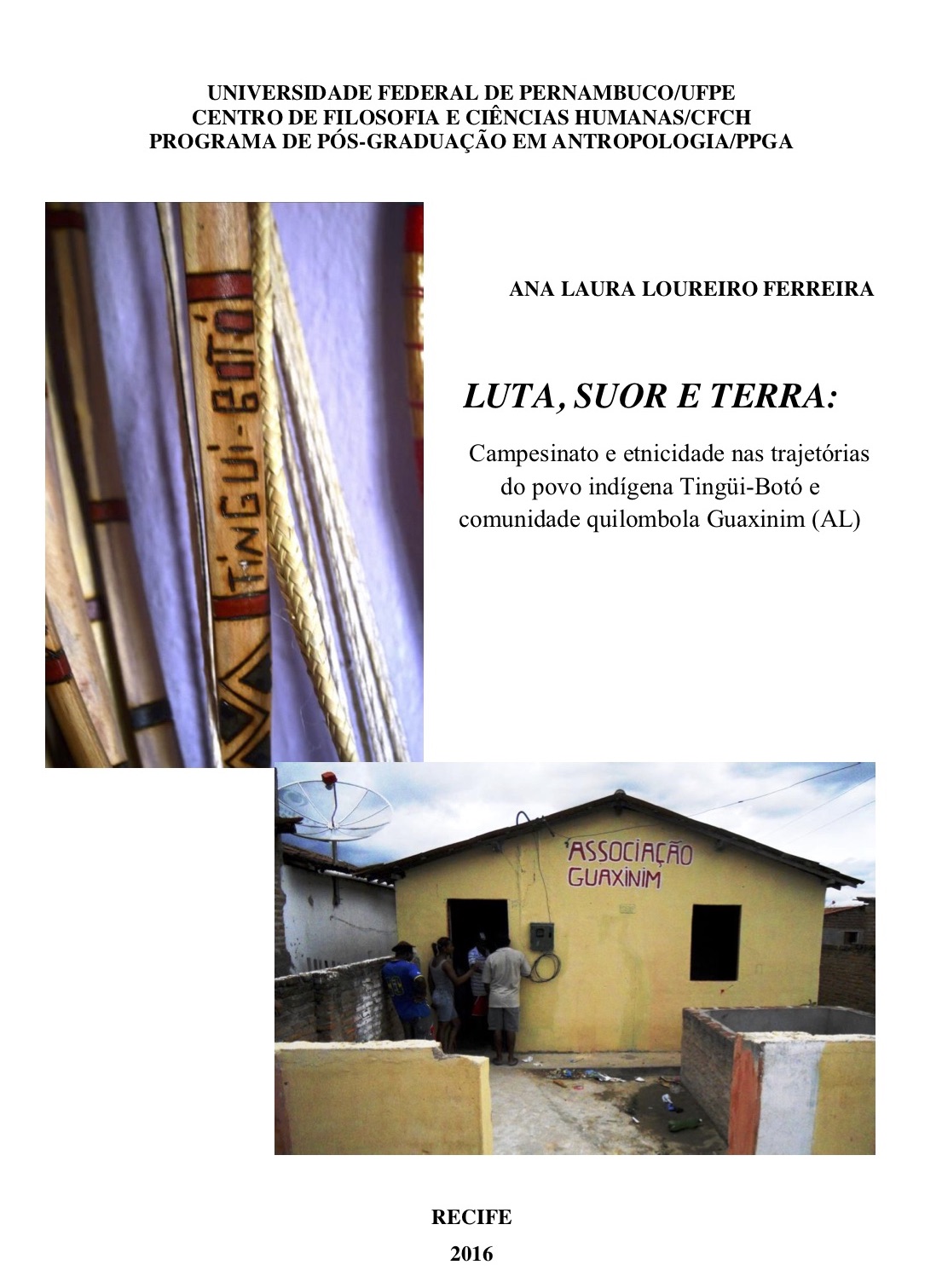Adaptation measures in agricultural systems: Messages to the SBSTA 44 Agriculture Workshops
This working paper synthesizes knowledge within CGIAR on adaptation measures in agricultural systems, for the benefit of parties and observers preparing submissions to the UNFCCC SBSTA. Experience from CGIAR and partners indicate that adaptation measures covering policy, technological, financial, institutional, and research interventions are being tested and applied in agricultural systems in low-income and middle-income countries.

